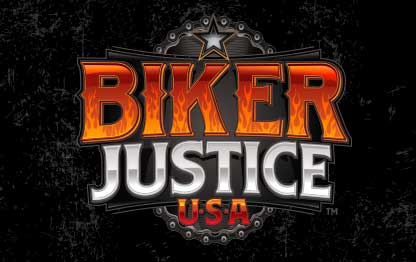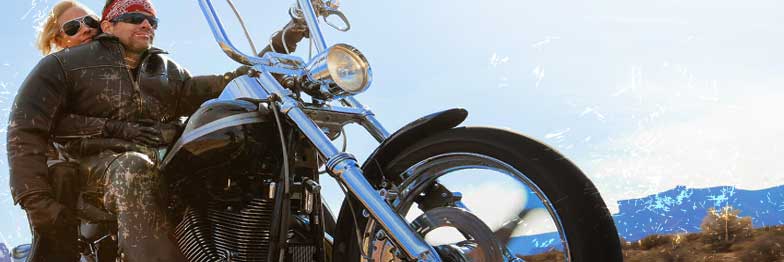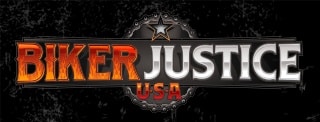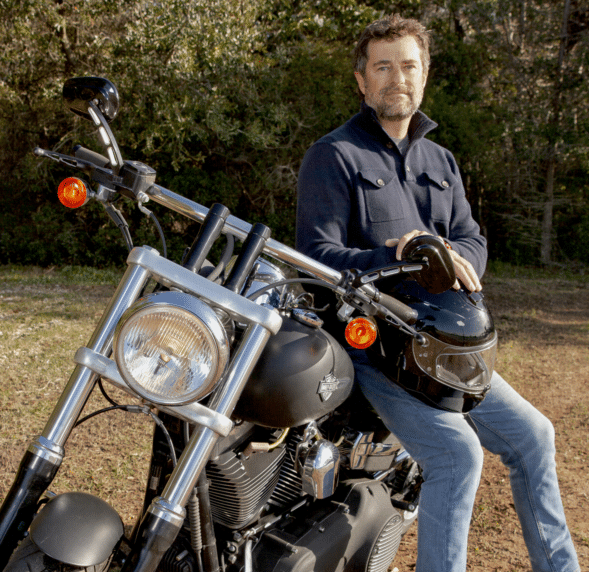Top Florida Motorcycle Accident Attorneys
Get the Florida Motorcycle Legal Help You Demand, So You Can Ride Hard.
Below you’ll find a Motorcycle Accident Attorneys that have real experience in motorcycle law and who have show passion when it comes to supporting the motorcycle community.
A lot of the attorneys that we feature in our directory also ride motorcycles themselves so they have personal experience and perspective to better understand your situation.
However, we do not limit the attorneys listed here only on their ability to ride a motorcycle. Our goal is to find someone who has is knowledgeable about Motorcycle Injury Law and who has the ability and passion necessary to fight for the justice you deserve.
Motorcycle injury law is a specialty in itself. Below you’ll find the Florida Motorcycle Accident Attorneys that we can stand behind.
The Most Commonly Asked Questions from Riders Like You.
What can I do if I’m run off the road while riding in Florida?
Do I have to wear a helmet while riding in Florida?
Do I need insurance in order to ride my motorcycle in Florida?
What should I do after a motorcycle accident in Florida?
What equipment do I need to ride my motorcycle in Florida?
How long do I have to make a claim after an accident in Florida?
Can I ride my Motor Scooter or Moped on the road in Florida?
What are the requirements for a Motorcycle License in Florida?
Is my motorcycle license transferable from another state to Florida?
What can I do if I’m run off the road while riding in Florida?
Motorcyclists who find themselves driven off the road trying to
avoid a reckless driver often find themselves in a difficult spot. When dealing
with ‘phantom vehicles’ - vehicles that have caused injury or damages without
an actual physical collision - a motorcyclist’s options are slim.
As another vehicle was not identifiably involved in your
accident, the other vehicle will be considered an uninsured vehicle, and your
best bet for recovering damages will be your Uninsured Motorist (UM) insurance.
To help secure your case, if you can, you will want to get a written statement from any witnesses that may have seen the accident occur. Write down any details you may have noticed about the vehicle, including its color, make, and model or license plate. It is important to report your accident as soon as possible to reduce the likelihood that your insurance will claim that there was no phantom vehicle.
- Jason Melton, Top Florida Motorcycle Accident Attorney
Do I have to wear a helmet while riding in Florida?
You must wear a helmet that is approved by the U.S. Department of Transportation while riding a motorcycle in Florida if you are under the age of 21, or when you are 21 or older and do not have insurance that provides at least $10,000 in medical benefits in the case of an accident (Florida Statutes 316.211)
As head injuries are one of the leading causes of death in motorcycle accidents, it is still strongly advisable to wear a DOT-approved helmet even when it is not strictly required by law. Not only will it reduce the likelihood of a serious head injury in the case of an accident, but many jurors consider failing to wear a helmet to be irresponsible, and wearing a helmet will reduce the risk of being considered at fault for not wearing sufficient protection.
- Jason Melton, Top Florida Motorcycle Accident Attorney
Do I need insurance in order to ride my motorcycle in Florida?
Insurance for motorcyclists in Florida is a complicated subject.
Unlike most other vehicles, motorcycles in Florida are not covered by mandatory
PIP (Personal injury protection), and riders are not required to provide proof
of insurance when registering their motorcycle.
This does not mean that they do not need insurance. In the case
of an accident, a motorcyclist is required to provide proof of financial
responsibility. This most often takes the form of the following minimum levels
of insurance, of which proof must be provided at the scene of the accident
- $10,000 for personal bodily injury liability for a single person
- $20,000 for personal bodily injury liability for two or more people
- $10,000 per crash for property damage liability.
- Christopher J. Klotz, Top Florida Motorcycle Accident Attorney
What should I do after a motorcycle accident in Florida?
The answer to this question depends largely on the severity of
the accident. If you have been seriously injured, which is unfortunately likely
with motorcycle accidents, your first priority is getting medical attention.
If possible, and you do not have to leave with an ambulance for
emergency care, stay with your vehicle until the police arrive. If your injuries are light, or another
individual can assist you in doing so, you will want to gather any information
you can, including but not limited to
- The name, contact and insurance information of the other party
- Witness contact information
- The license plate, make and model of the other vehicle
- Any details about the accident itself
Do not apologize or talk with the other party other than to
exchange information. Anything you say may be later used against you.
After your injuries have been taken care of, it is best to contact a professional Motorcycle Injury Attorney as soon as possible so that they can begin the investigation necessary to protect you and ensure that you can receive the compensation you deserve.
- Jason Melton, Top Florida Motorcycle Accident Attorney
What equipment do I need to ride my motorcycle in Florida?
In order to legally ride your motorcycle in the State of
Florida, there are a few requirements for you and your motorcycle.
- You must wear approved eye protection by the Department of Transportation
- Working headlights
- Reflectors
- Taillights
- Turn signals
- Left and right rear view mirrors
- DOT-Approved Helmets for those under the age of 21
- License plate, with a special plate for those under the age of 21.
- Handlebars must not be above the shoulder level.
If you have a passenger, they must have their own seat and footrests.
- Jason Melton, Top Florida Motorcycle Accident Attorney
How long do I have to make a claim after an accident in Florida?
The amount of time you have to make your claim after an accident
varies depending on the type of accident and the other party named in your
suit. For motorcycle injury claims, you will usually have four years to make
your claim, though this may be reduced in the following cases
- Wrongful death cases must be made within two years of the accident
- Claims against a government agency (in cases such as poorly maintained roads, or if the other driver was in a government vehicle) must be made within three years of the accident.
- When pursuing claims for property damage, your claim must be made within four years of the accident.
Claims regarding product liability in the case of an injury or death (for example, if you believe defective parts were the cause of your accident) share their limitations of four years in the case of injury and two years in the case of wrongful death.
- Christopher J. Klotz, Top Florida Motorcycle Accident Attorney
Can I ride my Motor Scooter or Moped on the road in Florida?
Motor scooters, defined as ‘a two-wheeled vehicle with a
step-through frame designed to carry a single person,’ is considered to be a
motorcycle and follows the same rules for registration and insurance.
As they are considered to be motorcycles, they also
require an appropriate license if they have an engine with over 50cc. Under
Florida law, they may not be ridden on an interstate or highway unless they
have at least 5 brake horsepower are capable of maintaining a 40 MPH speed.
A Moped, on the other hand, must possess pedals that allow you
to propel the vehicle and no more than two brake horsepower, with a maximum
speed of no more than 30 MPH. Mopeds require a valid Class E license and must
be registered at your county tax collector’s office.
You cannot drive a Motor Scooter or Moped on sidewalks or in the bike lane.
- Jason Melton, Top Florida Motorcycle Accident Attorney
What are the requirements for a Motorcycle License in Florida?
If you already have a valid Florida driver's license, you will
find it quite easy to also get a motorcycle endorsement on your driver's
license by completing the Florida Rider Program. There are special
considerations based on age; however, see below:
- To obtain a “Motorcycle Only” driver's license, you must be at least 16 years old,
- You will need to get your learner license which also requires taking the Florida Drug and Alcohol Course, take care of that before going to the DMV
- You will have to complete the Basic Rider Course (BRC) prior to being granted your motorcycle driver's license also. This is required by the Florida DMV.
- If under 18, you must hold at least a Learner's License for one year with no traffic convictions.
To obtain a motorcycle license in the State of Florida, a driver must pass the knowledge test used as well for a regular Class E operator's driver's license. Getting your Florida motorcycle license is not as challenging as you might think, and you could be cruising the coasts in no time.
- Christopher J. Klotz, Top Florida Motorcycle Accident Attorney
Is my motorcycle license transferable from another state to Florida?
If you are coming from any of the other states
or territories (other than Alabama) and your license is endorsed for motorcycle
operation, Florida will reciprocate the endorsement, and the motorcycle course
will not be required.
Alabama licenses with a motorcycle
endorsement included will be reciprocated if a Motorcycle Safety Foundation
(MSF) Basic Rider Course (BRC) completion card is presented with it.
To earn the BRC card, eight to ten hours of
classroom-style instruction are required – including, in some states, the Basic
eCourse that you complete online before attending your first formal
classroom session is required.
This prepares you for the ten hours of hands-on
riding exercises in a controlled, off-street environment that is usually a
paved parking lot.
Motorcycles and helmets are provided for
participants of the course. In the classroom portion of the course, you will
learn about the different types of motorcycles, their layout, and the operation
of basic controls, as well as how to become a safer, more responsible
rider.
Once that is complete, you will move on to the
riding range where your MSF-certified RiderCoach will guide you through the
following basic skills: straight-line riding, stopping, shifting, and turning,
gradually progressing to swerving and emergency braking.
The course wraps up with a classroom knowledge test and a riding skill evaluation. Once your trainer gives you the course-completion card, you can present it to the DMV and qualify for the Florida Motorcycle License.
- Jason Melton, Top Florida Motorcycle Accident Attorney







